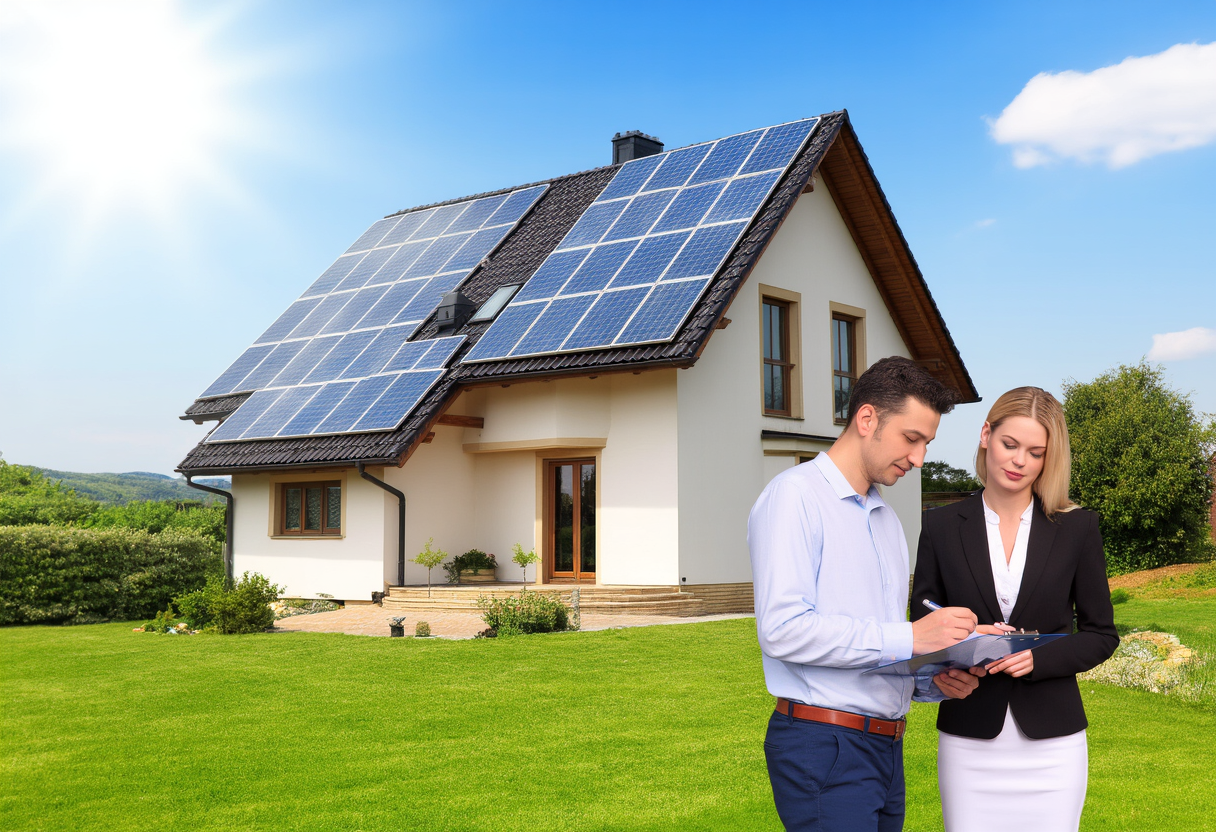Is Solar Leasing Worth It? Unpacking the Pros and Cons
Solar leasing presents an attractive way to adopt renewable energy without a hefty upfront cost. This financial scheme allows homeowners to benefit from solar power immediately while weighing the pros and cons. It's important to consider factors like maintenance responsibilities and potential long-term savings before committing. Dive deeper into understanding solar leasing's implications for budget-conscious consumers looking to embrace sustainability.
The Basics of Solar Leasing
Solar leasing has emerged as a popular alternative for many homeowners eager to transition to renewable energy. By opting for solar leasing, individuals can install solar panels without the hefty upfront costs associated with purchasing a system outright. Instead of owning the solar system, consumers enter a lease agreement with a solar company. A crucial aspect of solar leasing is the opportunity for homeowners to reduce monthly electricity costs effectively while enjoying the reliability of solar power. This appeal often piques the interest of budget-conscious individuals who are concerned about their financial commitments.
Financial Implications of Solar Leasing
Exploring the financial aspects of solar leasing reveals both benefits and downsides. Homeowners typically face lower monthly payments through a leasing arrangement compared to their standard utility bills, leading to immediate savings. Additionally, solar leasing allows individuals to circumvent the substantial capital expenditure associated with purchasing a solar power system. However, potential lessees should factor in the long-term nature of these contracts. The duration of lease agreements often ranges from 15 to 20 years and may include significant financial commitments that could affect future financial goals or budgets.
Maintenance and Ownership Issues
One of the critical distinctions in solar leasing lies in the ownership aspect. With leasing, the solar company typically retains ownership of the solar panels and is responsible for system maintenance and repairs. This arrangement can alleviate concerns for homeowners who may not want to deal with potential hassles of upkeep. However, this raises questions about the level of control homeowners have over the solar system and whether it meets their specific needs. It's essential for prospective solar leasing participants to understand the terms of their lease agreements fully, including details about maintenance responsibilities and system upgrades.
Environmental Benefits of Solar Leasing
The environmental advantages of solar leasing cannot be overlooked. By choosing to lease solar panels, homeowners contribute to the reduction of greenhouse gas emissions associated with traditional energy sources. Observing a transition towards renewable energy solutions engenders a sense of community responsibility alongside personal benefit. It's important to highlight how solar leasing can stimulate a broader cultural shift toward sustainable living, as increased participation in solar energy adoption positively impacts environmental health on a larger scale.
Deciding If Solar Leasing Is Right for You
As homeowners weigh the option of solar leasing, certain considerations should guide their decision-making process. Factors such as location, energy consumption patterns, and financial stability should all play a role in this evaluation. Moreover, individuals must assess how solar leasing aligns with their personal values regarding environmental sustainability and energy independence. By understanding their unique situations and potential benefits of solar leasing, consumers can make informed choices that meet their needs and foster a commitment to renewable energy.
The Growing Landscape of Solar Leasing
The solar leasing market is evolving rapidly, propelled by advancements in technology and changing energy policies. More companies are crafting favorable solar leasing programs aimed at attracting environmentally conscious consumers. Economic incentives, as well as state and federal tax credits, can further enhance the attractiveness of leasing options. As public awareness of the benefits of solar energy continues to grow, solar leasing is poised for continuous growth and acceptance across the United States.
Final Thoughts on Solar Leasing
In conclusion, solar leasing presents a compelling solution for many homeowners considering the transition to renewable energy. Balancing the pros and cons is essential for anyone looking to engage with this financial opportunity responsibly. The financial savings, environmental impacts, and ongoing responsibilities inherent in solar leasing must be critically evaluated. With informed decisions and a clear understanding of their personal goals, consumers can confidently embrace solar leasing and work towards a sustainable future.
